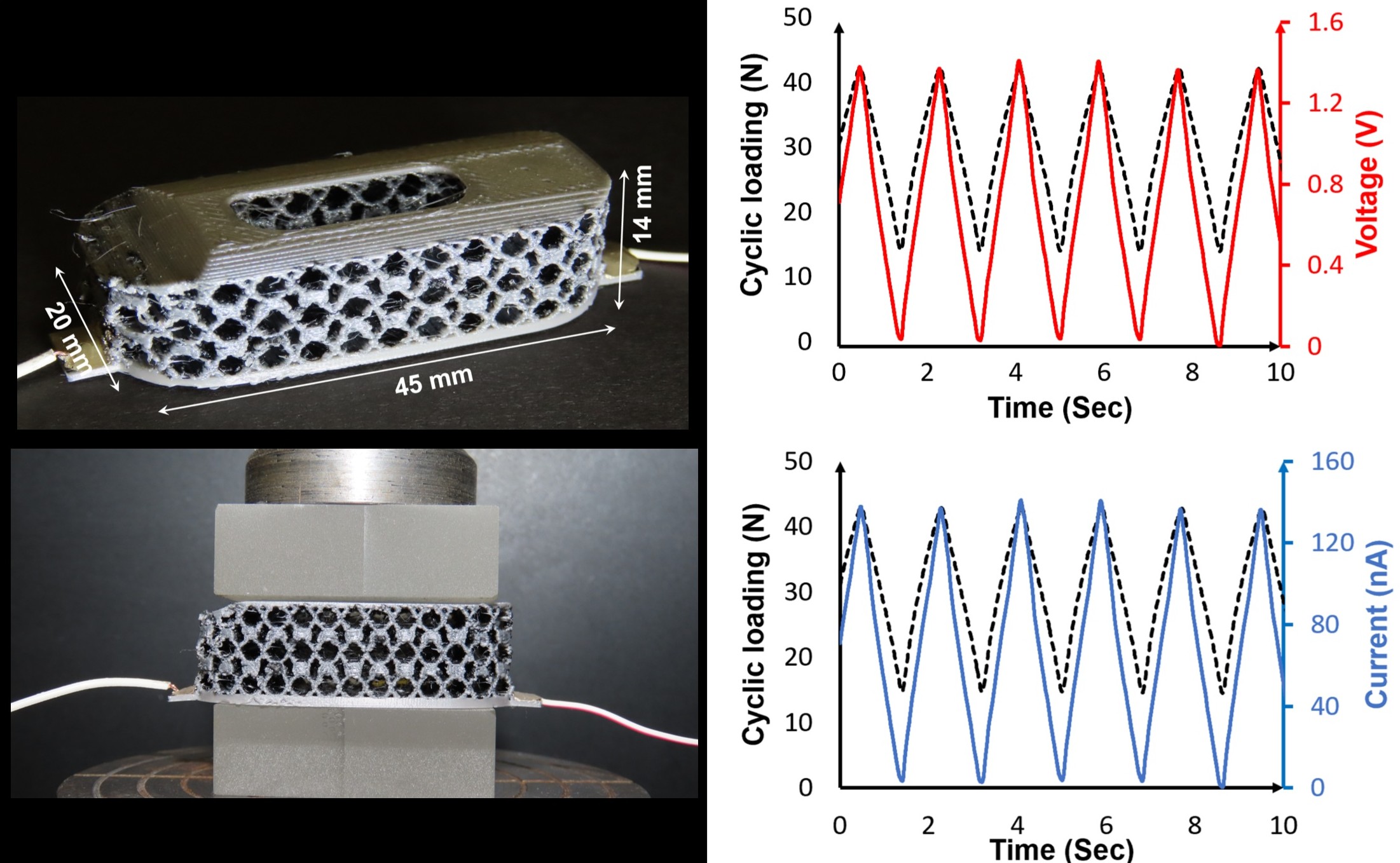Self-Aware Composite Metamaterials (Meta-Tribomaterials)
Researchers at the University of Pittsburgh have developed a new class of multifunctional mechanical metamaterials that are both self-sensing and self-charging. By integrating triboelectric nanogenerator technology into mechanical metamaterials, these "meta-tribomaterials" represent a breakthrough in the design of intelligent materials that can monitor and power themselves using mechanical motion alone.These advanced composites, also known as self-aware composite metamaterials, can generate electrical energy from mechanical inputs such as compression, tension, bending, or micro-scale vibrations. The energy they produce can be used to sense structural or physiological changes in real time or stored to power low-energy devices without batteries or wiring.Unlike traditional functional materials such as piezoelectrics, meta-tribomaterials can be fabricated using a wide variety of triboelectric materials. This flexibility makes them well-suited for applications in aerospace, healthcare, civil infrastructure, and construction, where material adaptability and biocompatibility are essential.

Description
Mechanical metamaterials are engineered structures whose unique properties come from their geometry rather than composition. While 3D printing has accelerated research in this field, most work has focused on improving mechanical performance alone. Meta-tribomaterials introduce a new direction by combining structural design with embedded electrical functionality. This advancement enables self-powered, self-aware systems for a wide range of use cases.Applications
• Aerospace systems and structural health monitoring• Orthopedic implants and smart medical devices
• Civil infrastructure with embedded sensing capabilities
• Renewable and off-grid energy harvesting solutions
Advantages
• Multifunctionality: Combines structural performance with sensing and energy generation• Power autonomy: Harvests energy from everyday mechanical activity
• Material flexibility: Works with many low-cost and biocompatible materials
• Scalability: Suitable for miniaturized and embedded systems
Invention Readiness
Multiple prototypes based on meta-tribomaterial technology have been successfully 3D printed and tested. Medical applications include spinal fusion implants, cardiac stents, and shock-absorbing orthopedic devices. These systems, fabricated using biocompatible triboelectric materials, have demonstrated consistent energy generation from physiological motion and force inputs. Civil infrastructure applications have focused on the development of meta-tribomaterial concrete. Further optimization and scale-up are underway to prepare the technology for real-world deployment across both domains.IP Status
https://patents.google.com/patent/US20220209686A1Related Publication(s)
Luo, J., Lu, W., Jiao, P., Jang, D., Barri, K., Wang, J., ... & Alavi, A. H. (2025). Wireless electronic-free mechanical metamaterial implants. Materials Today, 83, 145-156. https://doi.org/10.1016/j.mattod.2024.12.018
Barri, K., Zhang, Q., Kline, J., Lu, W., Luo, J., Sun, Z., ... & Alavi, A. H. (2023). Multifunctional nanogenerator‐integrated metamaterial concrete systems for smart civil infrastructure. Advanced Materials, 35(14), 2211027. https://doi.org/10.1002/adma.202211027
Barri, K., Zhang, Q., Swink, I., Aucie, Y., Holmberg, K., Sauber, R., ... & Alavi, A. H. (2022). Patient‐specific self‐powered metamaterial implants for detecting bone healing progress. Advanced Functional Materials, 32(32), 2203533. https://doi.org/10.1002/adfm.202203533
Barri, K., Jiao, P., Zhang, Q., Chen, J., Wang, Z. L., & Alavi, A. H. (2021). Multifunctional meta-tribomaterial nanogenerators for energy harvesting and active sensing. Nano Energy, 86, 106074. https://doi.org/10.1016/j.nanoen.2021.106074
